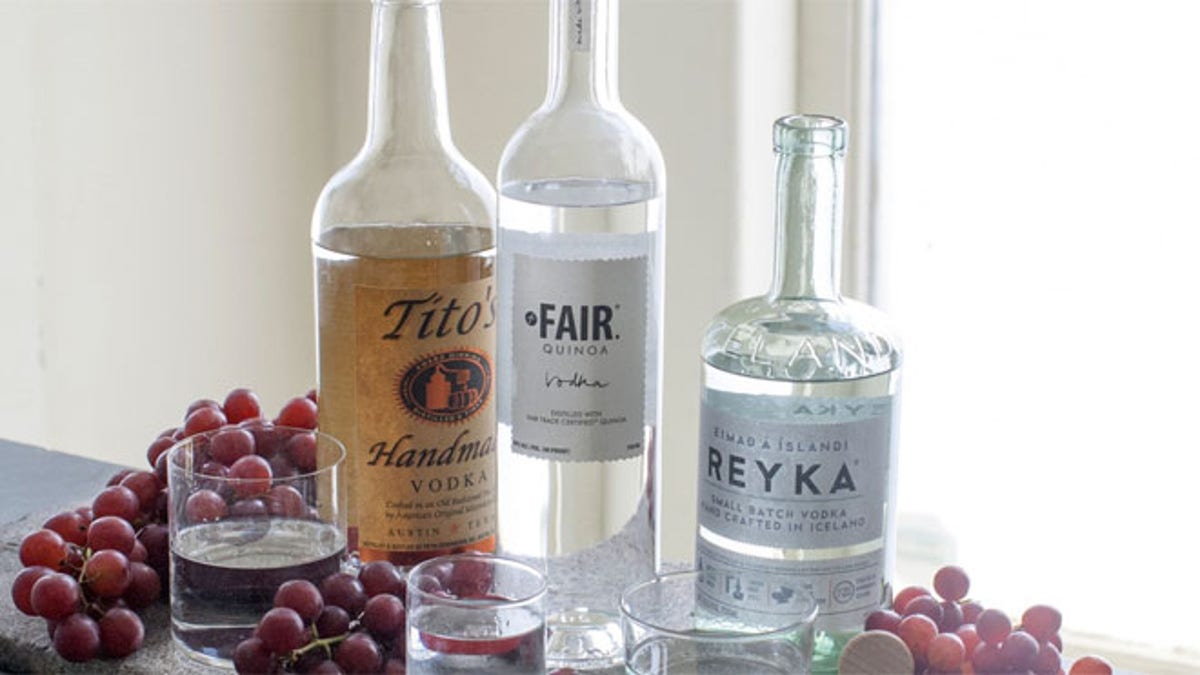
Vodka makers are going back to basic and moving away flavored vodkas. (AP)
We’ve had cream-flavored vodka, candy-flavored vodka, even breakfast cereal-flavored vodka. Now, producers are betting on something different, vodka that tastes like... vodka.
From an Icelandic vodka made from glacier spring water to a Colorado potato vodka made from freshly picked home-grown spuds, the latest vogue in vodka is more craft than kitsch.
“Vodka distilleries are saying, ‘Listen, let’s get back to our basics. Let’s make these products and represent ourselves in a way that holds true to mixing a very clean cocktail,” says Jeff Leanheart, beverage director of The Smith Lincoln Center in New York City.
Flavored vodkas have been huge in recent years — bubble-gum flavored martini, anyone? — and Leanheart doesn’t expect them to disappear. “There’s obviously a niche to any item.” But there’s a serious spirit emerging in new premium vodkas that mirrors the food world emphasis on fresh, local and seasonal products.
Take Reyka, a new vodka from Iceland that in addition to being made with glacier water is filtered over Icelandic lava rocks.
The result is a spirit with “a beautiful mouth feel that shows beautifully in simple drinks. It can be drunk almost naked, if you will,” says Charlotte Voisey, well-known mixologist and global ambassador for William Grant & Sons, the distillery that makes Reyka. (Other popular Grant brands include Hendrick’s gin and Tullamore Dew Irish whiskey.)
Water is a key part of making vodka since the point is to produce a pure spirit, says Leanheart.
How many times the spirit is distilled depends on the producer’s philosophy. Karlsson’s Gold is distilled just once and also unfiltered to preserve the taste of the virgin potatoes it’s made with, while Purity clocks in at 34 distillations.
Many vodkas are distilled from wheat, but by no means all. The popular Tito’s Handmade Vodka, which hails from Texas, is made from corn; there are vodkas made from grapes such as Ciroc, as well as vodkas that spring from a host of other ingredients, including Fair Quinoa vodka, which also is fair trade certified.
In Basalt, Colo., Woody Creek Distillers puts a modern twist on tradition.
The distillery, started by former defense industry engineers Pat Scanlan and Mark Kleckner, uses potatoes grown from the 30-acre farm Scanlan owns with his wife near Aspen. And these potatoes aren’t left to sit in cellars for months at a time. Scanlan and Kleckner take them right from the ground to the distillers on the same day.
It’s back-breaking work, but they say it’s well worth it.
“Being able to control every aspect of the production is how we’re able to control and ensure the highest quality,” Kleckner said. “We’re not second in line waiting on potatoes. We’re doing that farming to make sure we have absolutely the freshest potatoes for the production of the vodka. The buck all stops with us and we make sure everything is just right.”
